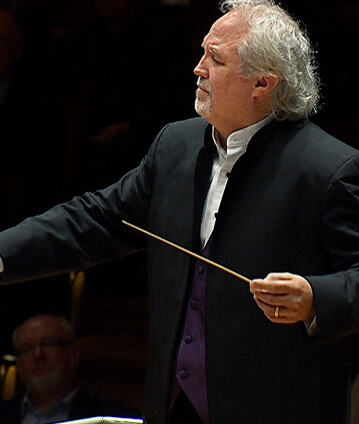Interview
Ludwig Quandt in conversation with Götz Teutsch Donald Runnicles dirige des œuvres de Strauss et Elgar

Brillants exemples de l’art de l’orchestration au tournant du XXe siècle, les deux œuvres présentées ici par Donald Runnicles diffèrent totalement dans leur posture et leur expression. Là où la Symphonie n° 1 d’Edward Elgar impressionne par sa noblesse et sa sensibilité, Don Quichotte de Richard Strauss est essentiellement une satire mordante. En solistes : le violoncelliste Ludwig Quandt et l’altiste Amihai Grosz.
Berliner Philharmoniker
Donald Runnicles
Amihai Grosz
Ludwig Quandt
© 2011 Berlin Phil Media GmbH
Interviews liées au concert
Artistes
Nos suggestions
- Musique de chambre philharmonique : du classicisme viennois à la modernité
- L’Orchestre fédéral des Jeunes avec Sebastian Weigle
- Simon Rattle dirige Mozart et Haydn à Lucerne
- Simon Rattle avec Mitsuko Uchida et Amihai Grosz
- « Late Night » : une soirée klezmer
- Tugan Sokhiev dirige la Première de Mahler